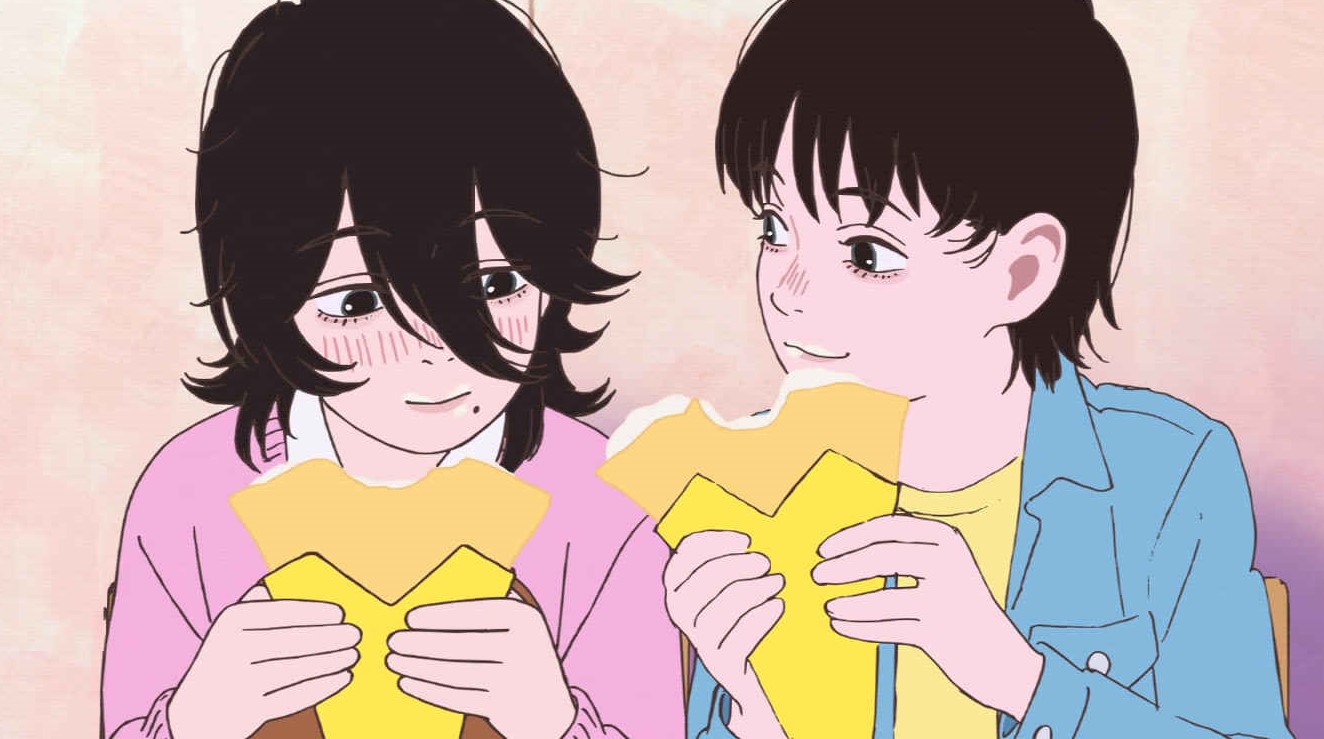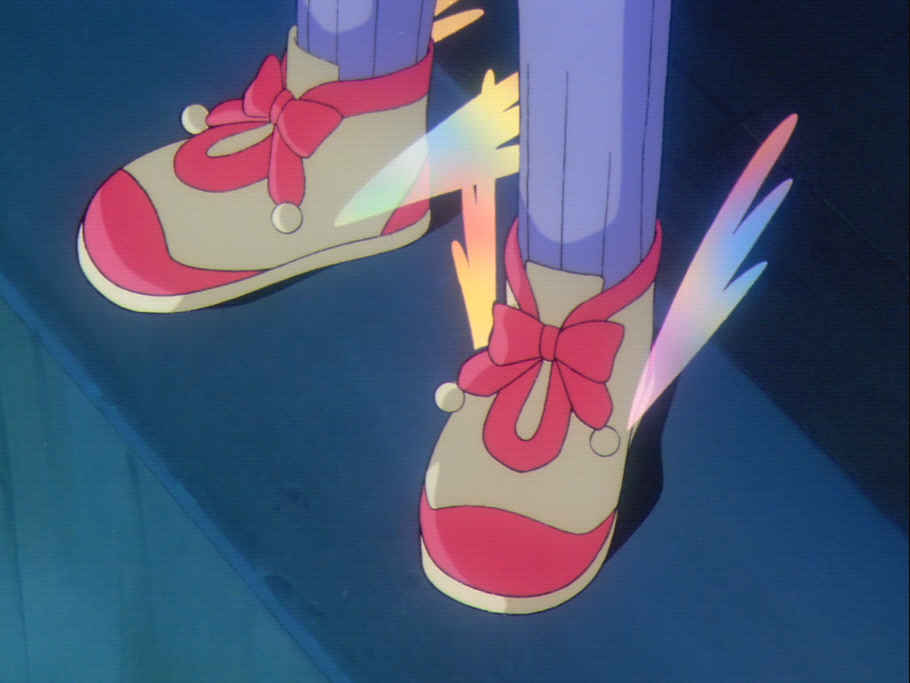Japanese Reading Report: 24 November 2024

This week I flew to America. During the flight I was able to read a little bit but, aside from some manga on top of my normal quota, the entire two-leg journey was only about one day of normal reading. I finished 魔法少女リリカルなのは, started reading 痴人の愛, in addition to a bunch of other things. Check it out below.
- 魔法少女リリカルなのは (第10-13話)
- サーシャちゃんとクラスメイトオタクくん (2巻)
- カードキャプターさくら (第1-5話)
- 痴人の愛 (1-52ページ)
- ダンダダン (17巻)
- ダンダダン (第8話)
- ストレッチ (1巻)
- ルックバック
魔法少女リリカルなのは
So Nanoha comes to an end. At the twilight of this series we get
one big, final revelation. Fate is a clone
! The science-fiction trappings of the series added a nice
twist to what I expected to be a standard magical girl series.
It doesn't take long for the affected character to overcome the
grief caused by her
misfortune, and she re-enters the fray by the end of the following
episode. A fast turnaround, but the curtains were closing just as
fast so, why not? Her final monologue is fairly powerful, but I
think the story was missing some more conflict here, and instead it
more or less ends there.
The resolution of the story also came fairly suddenly in the
second-to-last episode, giving the final episode space to act as
a farewell to the characters
なのは was able to meet. I really
liked the symbolic trading of ribbons between
なのは and
フェイト.
サーシャちゃんとクラスメイトオタクくん
The themes and content didn't deviate far from the first volume.
サーシャ and
藤原 continue their
playful demi-romance.
A mini-arc I enjoyed this volume involved
藤原 finishing
the draft of his first eromanga—a story about a submissive
girl and a dominant boy.
サーシャ reads it enthusiastically,
but she's disappointed by the final product, saying that
it lacks an honest expression of
藤原's tastes. After
some conversation
藤原 decides to flip the roles,
reworking the story to focus on a submissive male
character.
This story is revisited later in the volume.
サーシャ
rereads
藤原's new draft, loves it, and they
celebrate his win. It was a nice exploration of the
role of honesty and introspection in the creative
process.
This volume also includes a little Russian-language
lesson.
サーシャ explains how middle names are passed
down by fathers to their children, with a little
twist. Male children take the father's given name
and append -(o)vich, and female children append -(o)vna.
The volume sort of touches on
サーシャ's backstory. Her
mother and father have separated and she lives alone
with her mother who spends a lot of the time out of the
house. Her father still lives in Russia and has started
a new family.
Unfortunately I won't be reading any more volumes until
at least February 2025 because I don't have access to my
physical book collection. Ah well.
カードキャプターさくら

I was pleasantly surprised by how much I liked the
five episodes I watched of this. The animation was
absolutely gorgeous,
さくら and her daily life are
rendered with so much care and attention. I loved
how tender and warm the world felt. I had heard vaguely
of (though it wasn't the impetus of my interest in the
series) a romantic tension between
さくら and her
older brother's classmate,
雪兎. Being so early
in the series, it's hard for me to judge the
situation, but so far it seems like little more than
one-sided infatuation from
さくら. I suppose it remains
to be seen how
雪兎 returns the affection as it
goes on.
I am a bit worried the series won't have legs for
70+ episodes simply due to the formulaic structure of
episodes. Each episode so far hasn't deviated much
from: 1) Introducing some daily life vignette, 2)
introducing a Clow Card covertly disrupting things,
and 3)
さくら and friends figure out how to
capture it. It's an oversimplification, maybe, but
the show is definitely very firmly in the "monster
of the week" subgenre at this (admittedly early) point.
A few small visual notes:
Even more than
なのは, this show has some absolutely
phenomenal costume designs. The "magical girl" outfits,
supplied by her friend
知世, are all extremely
cute, and I think it's a genius move to encourage
outfit changes every episode. The daily-life outfits
are also well designed. It's a very pleasant show
to watch for that reason.
I noticed that
さくら grows magic wings on her feet
just before leaping off a building in episode 1.
なのは also used Hermetic wings to fly.
I wonder if there's a shared inspiration.
痴人の愛
This is my next novel after finishing Lolita.
After I mentioned reading Lolita, this book was
recommended to me by someone saying it has
similar themes. This book was written in the
1920s, so it predates Nabokov's book by about
thirty years. I suppose I'm getting deep into
a particular kind of storytelling at
this point.
This book is about a middle-aged man who falls
in love with a fifteen-year-old waitress at a
cafe.
君子 is infatuated by
Westernness because of Japan's
honeymoon with the Western World. He
perceives
ナオミ, whose name and
physical features resemble Western girls
more than her peers, as a perfect future wife.
Like Lolita's Humbert,
君子 mostly talks about
ナオミ in terms of the value he sees in her as an
asset. It was interesting to read him say that,
while
ナオミ is not the most attractive woman he's
ever seen, other qualities, such as her youth and
malleability, make her the perfect girl for him.
Unlike in Lolita,
君子 sort of goes
through some courtship rituals in order to spend
time with
ナオミ. That's kind of an indictment a
time and culture which would permit such a thing,
really. There was a fun line where
君子 describes his
perfect house, with a maid and a caged bird, and
follows it by saying that he wishes
ナオミ would
become both.
I've also found it interesting that
ナオミ likes to
read. Reading is kind of an intellectual hobby
(and probably signalled intellect even
more in 1920s Japan) so it implies a richness to
her personal life that I appreciate.
I've found it far
more approachable than the Japanese translation of
Lolita, and even more approachable than
太宰治,
however it's still quite challenging. A
lot of Japanese novels of the time deviate quite a
bit from contemporary Japanese. A few common words
use unconventional kanji (云う instead of 言う for
example) and some uncommon words are used with a
higher frequency (to be fair, this could also be
attributed to a particular author's preference).
ダンダダン(漫画版)
Continuing directly from the previous volume, volume 17 is set almost exclusively within the cursed game board. 桃 and ズマ discover some new mechanics of the game, progress towards (what they imagine is) the end of the board, and get hit with a little cliff hanger. It's kind of a shame バモラ has been so snubbed in this arc, because she's #1 girl.
ダンダダン(アニメ版)
Another low-energy episode to start. A welcome change of pace from the previous episode. This one mostly focused on integrating 愛羅 into the party, developing the romantic tension between オカルン and 桃, and introducing the next major threat.
ストレッチ
This is a manga by the same author as ヴァンピアーズ. I read it on the plane to fill in some time. I honestly don't have much to say about it, except that it didn't hold my attention very well. Some of the stretching advice made me think about my own relationship to my body, flexibility, and health, though. That's something.
ルックバック
Kind of a weird one to be right at the bottom because it was definitely a highlight of the week. I've been anticipating this movie (mini movie? short film?) since it was announced because the manga version of this was actually my introduction to 藤本タツキ. This story easily remains one of my favourites of the last few years. I adore the way it uses a few simple moments to create a highly emotional beats. Definitely a must-watch film if there ever was one.